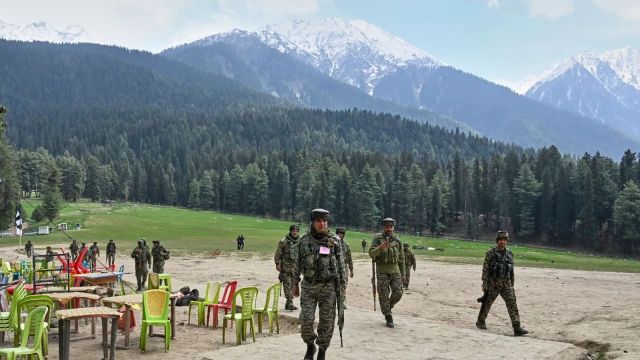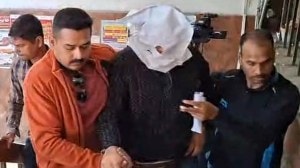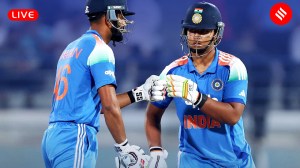A combination of “technical intelligence” and “credible information” from intelligence sources including critical eyewitnesses has confirmed the identity of the Pahalgam attack terrorists and established the Pakistan “link”, New Delhi has conveyed to the international community over the past two days, The Indian Express has learnt.

They have been briefed about the terrorist attack in Pahalgam in which 26 civilians were killed.
Foreign leaders and envoys have been told that the “electronic signature” of the terrorists and the terror group, The Resistance Front, has been traced to at least two locations in Pakistan, it is learnt.
Foreign governments have also been told that some terrorists have been identified and their past activities – also involvement in terror attacks – have confirmed that they came from Pakistan, had infiltrated some time back and had been hiding in Indian territory. This has been substantiated by technical intelligence, human intelligence as well as eyewitness accounts, it is learnt.
Delhi has launched a series of diplomatic retaliatory steps against Pakistan, and officials have justified these steps to their foreign counterparts, saying there is enough material that establishes Pakistan’s involvement in the attack.
This part of Delhi’s coercive diplomacy is meant to isolate Pakistan and increase international pressure on it. Misri had underlined “the cross-border linkages of the terrorist attack”, while announcing the diplomatic measures against Pakistan.
Story continues below this ad
The Indian side – Prime Minister Modi, External Affairs Minister S Jaishankar to counterparts and MEA officials to the envoys – has expressed gratitude and appreciation for expression of support and solidarity with India in this hour of crisis.
The second message that has been delivered to all foreign governments is that India is safe for foreign tourists, and foreign governments don’t need to rush to issue travel advisories. The US and UK have issued travel advisories.
So far, 13 world leaders have called up Modi. On Friday, British Prime Minister Keir Starmer and Dutch Prime Minister Dick Schoof spoke to Modi.
Starmer said he was “horrified” by the terror attack. According to a readout of the call from 10 Downing Street, Starmer expressed deep condolences on behalf of the British people, and both leaders agreed to stay in touch. The MEA said Starmer conveyed his sincere condolences on the innocent lives lost in the “heinous terror attack on Indian soil”.
Story continues below this ad
Dutch Prime Minister Schoof also called and extended his condolences to Modi. Strongly condemning the “cowardly act”, Schoof rejected terrorism in all its forms and expressed solidarity with India. In response, Modi thanked the Netherlands for its support, emphasising India’s commitment to collaborate with it to strengthen the global fight against terrorism.
Earlier, French President Emmanuel Macron, Israeli Prime Minister Benjamin Netanyahu, Italian Prime Minister Giorgia Meloni, Japanese Prime Minister Shigeru Ishiba, Egyptian President Abdel Fattah El-Sisi, Jordan’s King Abdullah II, Mauritius Prime Minister Navin Ramgoolam, Nepal Prime Minister K P Sharma Oli, Australian Prime Minister Anthony Albanese and US President Donald Trump called Modi following Tuesday’s attack.
On Friday, Jaishankar spoke to Saudi Foreign Minister Faisal bin Farhan Al Saud and met with ambassadors of Israel, Nepal, Egypt and Argentina.
On Thursday, he spoke with French Foreign Minister Jean-Noel Barrot and met with Jens Plotner, Foreign and Security Policy Advisor to the German Chancellor.









